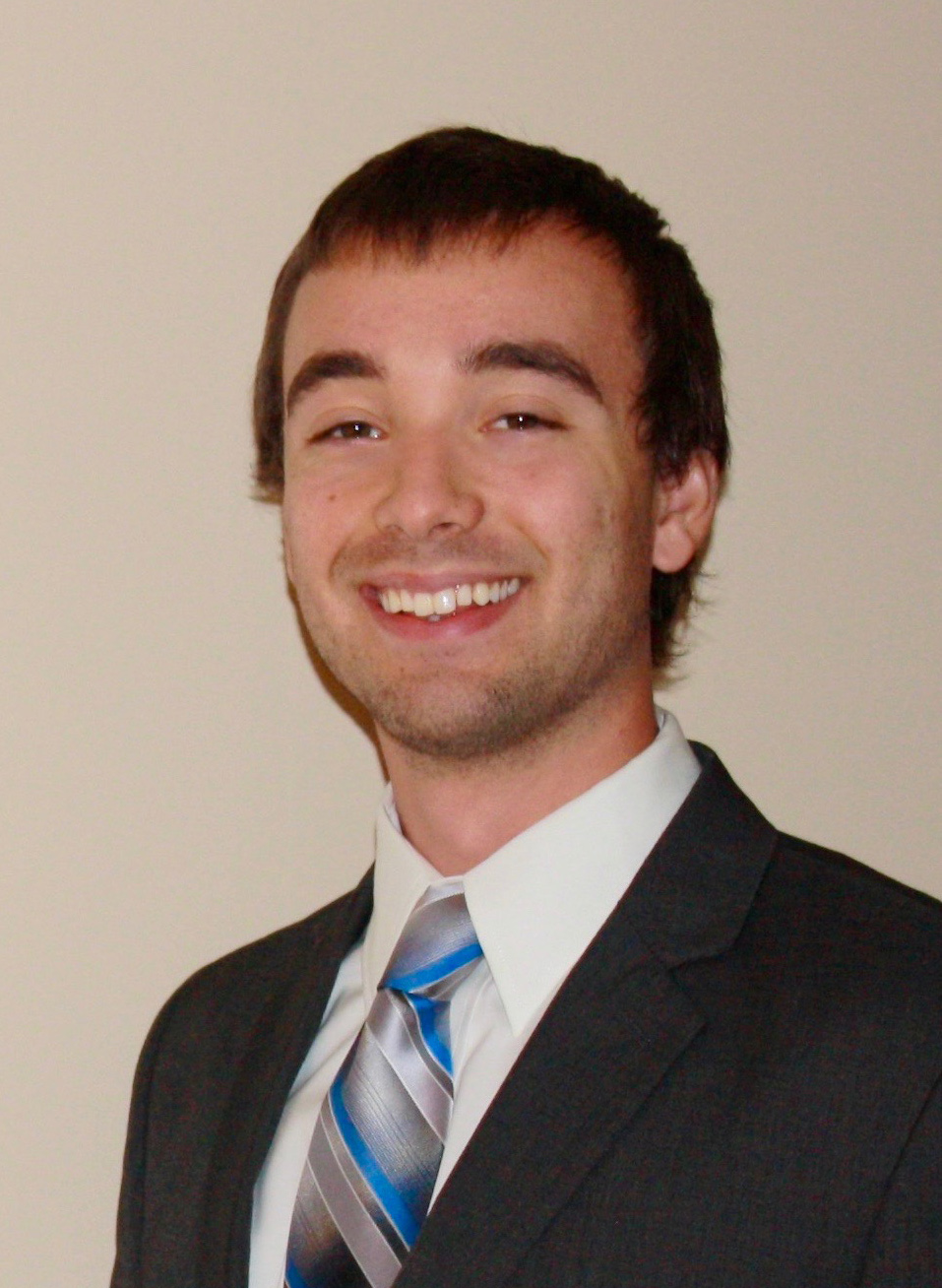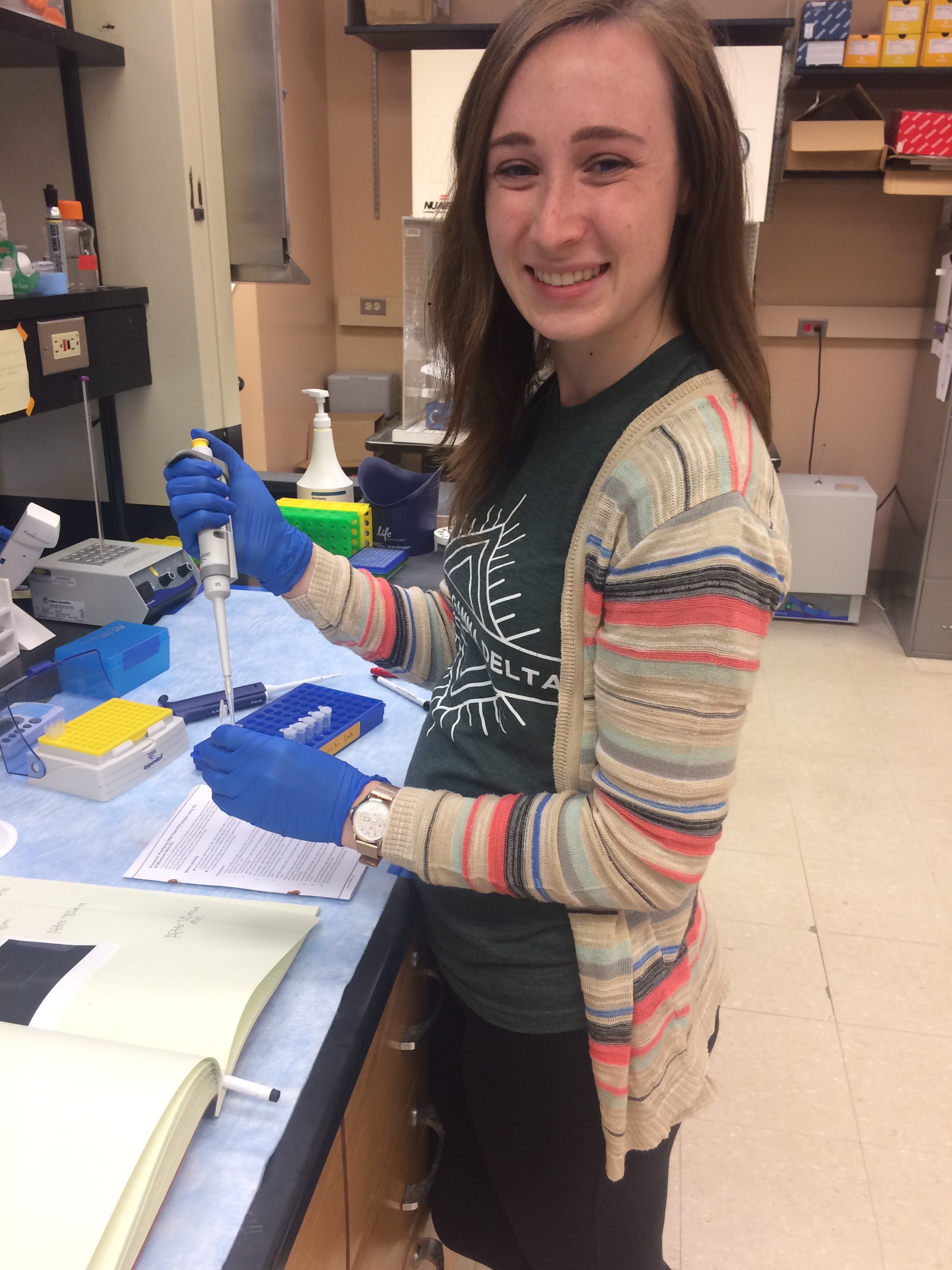Students to present at Symposium on Undergraduate Research & Creative Expression
Author: Amy Juhnke
Author: Amy Juhnke
Nearly 40 students will represent the College of Liberal Arts and Sciences at the Symposium on Undergraduate Research & Creative Expression on April 11.
Undergraduates from all academic disciplines will share their research with the university community and other guests through conference-style oral or poster presentations, held in the Memorial Union.
The Symposium is organized and coordinated by Svitlana Zbarska, undergraduate research program coordinator, with financial support from all university colleges. More than 50 Iowa State faculty members will participate as facilitators or judges to provide feedback to presenters and identify the best presentations.
Students from all areas of the college will present topics ranging from brain cell regeneration to helping children cope with immigration stress to searching for a cure for amyotrophic laterals sclerosis (ALS).
Brain regeneration
Daniel Stroud (’17 genetics) worked with Donald Sakaguchi, professor in the Department of Genetics, Development, and Cell Biology, to grow adult stem cells from the brain. These neural stem cells have the potential to differentiate into multiple neural cell types. The cells were grown on very thin filaments, or microfibers, of polycaprolactone, a plastic that acts like a scaffold.
“Our idea is that these microfibers might choose or promote a certain direction of growth,” Stroud said. “We found that the microfibers actually promote glial cell differentiation.”
The stem cells grown on the microfibers differentiated into glial cells, a cell type that supports neurons.
“You have the neurons which form memories and communicate with each other like you think the brain does, and there’s accessory cells called glia and they support the neurons,” Stroud said. “So if you have one neuron, you might have ten glia around it which take away waste products, bring nutrients in, and support the neuron.”
The researchers hope this treatment could one day be useful in promoting regeneration of the brain after injury.
Stroud will graduate in May and apply for medical school in the fall.
Immigration assistance for children
Kevin Wagner (’17 psychology and Spanish) developed a prototype children’s book in both Spanish and English to help children cope with the stress of immigrating to a new culture.

“It is my hope that someday a book can be modeled after this book to help immigrant children manage the stressors of acculturation — the stressors that people face when they immigrate to a new place,” Wagner said. “I also hope that the book can serve as a platform for children to discuss these issues with caregivers such as family and friends or teachers.”
Wagner’s book tells the story of a hedgehog who immigrates to a new land where he faces language barriers and new cultural customs. The narrative incorporates peer-reviewed psychology research for adaptation strategies in a kid friendly format.
Wagner also conducted a pilot study where he read the book to Latin American immigrant children and their parents and received feedback, which he will use to improve the story.
“I’m very interested in how psychology can be used to address real world issues, in this case acculturative stressors,” Wagner said.
Wagner was also able to reflect on his experience studying abroad in Spain during the project. He plans to attend graduate school in counseling psychology after graduating this spring.
Progress toward a cure
Amy Stark is part of one small step progressing toward a cure for amyotrophic lateral sclerosis (ALS), commonly known as Lou Gehrig’s disease.
Several genes have been identified as possible genetic factors which may cause or contribute to the degenerative neurological disease, among them NEK1. When NEK1 is not active, it does not express a protein, which may be a part of preventing ALS.

Stark is working to create a mutation in the gene in a zebrafish model, to see if the mutation causes any ALS symptoms. Currently, the research is looking at any mutation. Once that is successful, the research will look at a very specific mutation that is theorized to contribute to ALS.
“I was so interested in making some kind of difference in the world of genetics and the diseases really drew my attention,” Stark said. “If I could be a researcher that finds some kind of cure for these diseases I’d just be over the moon. One of the reasons I came to Iowa State was because of genetics and the possibility to do research like that.”
Stark (’19 genetics) will explore a different area of genetics research this summer at an undergraduate research fellowship at the Mayo Clinic in cardiac regenerative medicine before returning to the same Iowa State lab next fall.
Support the research
Support the innovative work of these students and others at the Undergraduate Research Symposium:
April 11, 2017
9am to 6pm
Memorial Union
The 11th annual campus-wide Symposium on Undergraduate Research & Creative Expression represents part of a larger effort of Iowa State University to enhance, support, and celebrate undergraduate research activity.
Free and open to the public
[https://www.undergradresearch.iastate.edu/for-students/present-your-work/symposium-on-undergraduate-research-and-creative-expression](https://www.undergradresearch.iastate.edu/for-students/present-your-work/symposium-on-undergraduate-research-and-creative-expression)